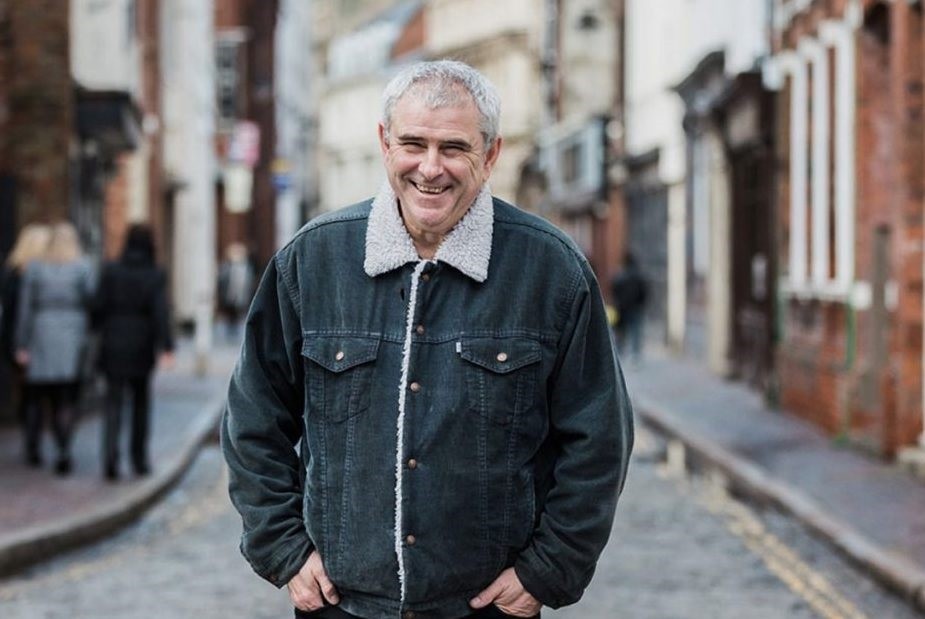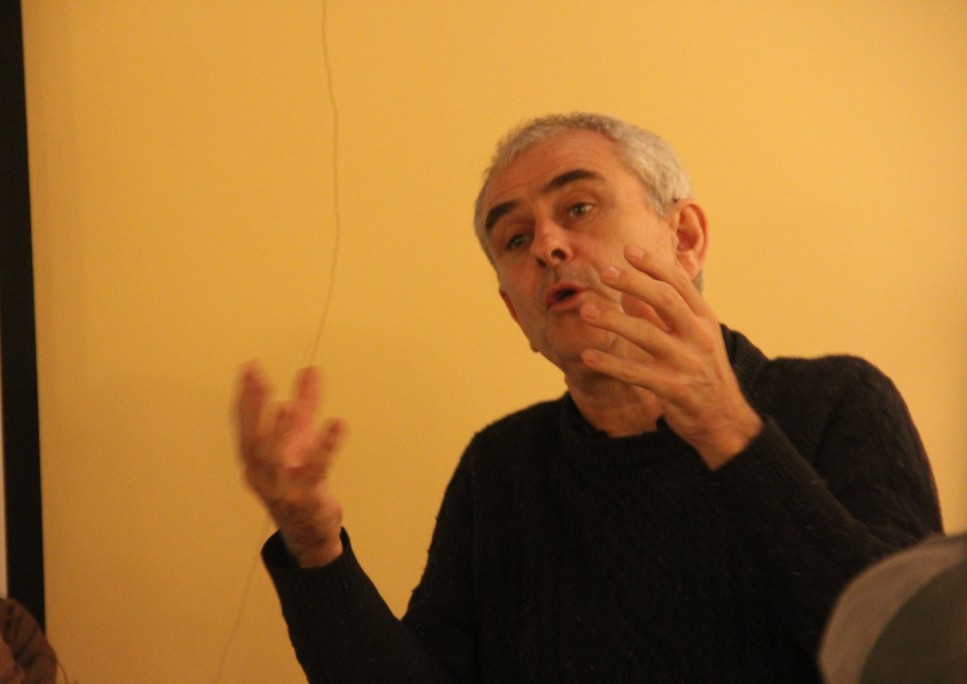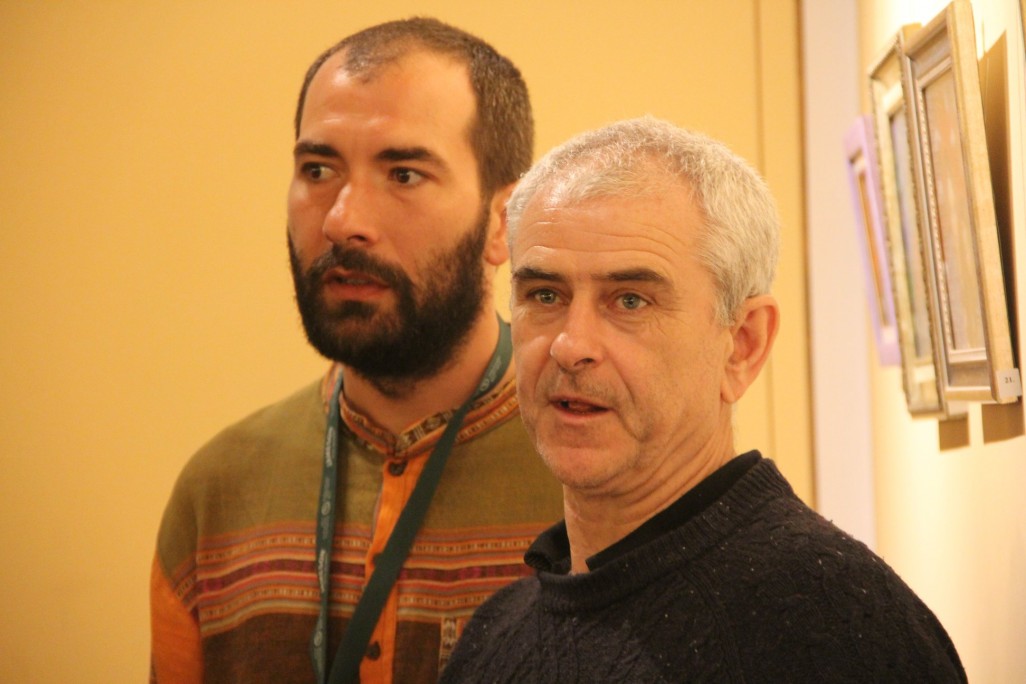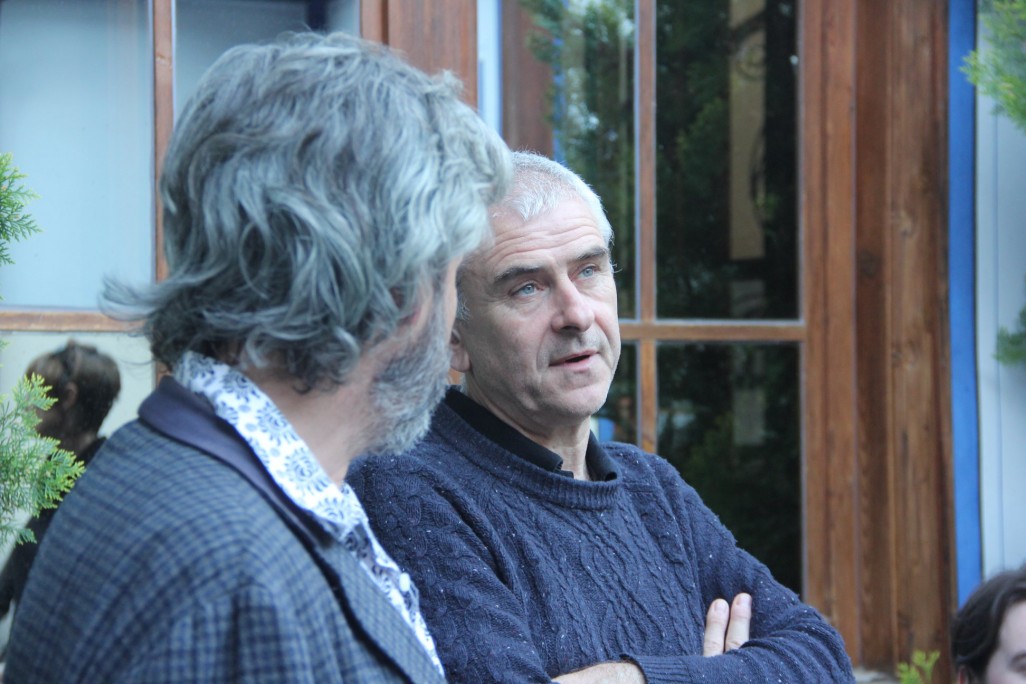Sean McAllister is one of the bravest and the most respected contemporary documentarians. He was a special guest at the 23rd Sofia International Film Fest and presented his latest film "A Northern Soul" in Plovdiv following its screening in Sofia. The documentary revolves around Steve Arnott's Beats Bus project during Hull's year as the UK capital of culture. Back then, Sean McAllister acted as a creative director of the event's opening ceremony, and Steve was a warehouse worker who organized hip-hop workshops for children from marginalized communities to boost their confidence as well as to follow his own dreams for a better and fulfilling life.
Krassimira Djissova spoke to Sean McAllister about "A Northern Soul" and his previous mind-blowing documentaries "A Syrian Love Story", "The Reluctant Revolutionary" and "The Liberace of Baghdad" which have taken him to Syria, Yemen and Iraq, respectively.
Your latest movie, A Northern Soul, deals with highly controversial and disturbing issues such as Brexit and poverty, respectively, in your home city of Hull. On the one hand, Hull is a city with a rich cultural heritage and, probably, one would expect to find there a more cosmopolitan environment. On the other hand, however, nearly 70% of Hull's population voted Leave in the 2016 referendum, even though those coming from other EU countries comprise only about 7%. Do you find it paradoxical?
Sean McAllister: Hull is made of a whole load of different people. It's like when you are talking about Bulgaria. Also, a lot of people are not massively educated, and the right-wing media knew who they were talking to and what buttons to press. But it's also a bit historic and I saw this, because I made a film in Hull in 2003. When the first Kurdish asylum seekers were brought to the city, they were actually just dumped in the city. There was no information given to the poor guys or to the community. They were housed into very good properties in the city center which working-class people can't afford. These people were not sent to middle class or wealthy communities. Instead, they were just dotted to cities, such as Liverpool, Glasgow and Hull. The irony is that a very small percentage appear to be pure Hull, because Hull was built on the ports. If you go back centuries, you realize that very different people have settled in the city. I think Brexit has more to do with poverty, rather than immigration. What we've got in Britain is a bigger polarity between rich and poor and, unfortunately, people don't blame the politicians or the elite, but they attack immigrants.
Looking at the social map of England, what precisely do you see?
Sean McAllister: I think that unless we do something with those people that are currently living safe they won't be safe, because they are pushing it to a situation similar to that in South Africa. I think if you want to be wealthy and protected you have to protect yourself, because people being so squeezed that they are going to come and get it. I mean, people with the Robin Hood mentality. Well, “unless work pays”, as the government says. But work doesn't pay! Now there are more jobs than ever. There is no reason to not have a job. If you're stupid enough to have one. [Laughs] None of them fucking pay. Why would you fucking drive around parcels trying to make the ends meet?
Was it difficult to film in your home city? Did people expect you to portray them in a specific way?
Sean McAllister: I had a responsibility, because I did an opening show for the city of culture and the spotlight was on me. It was a feature film backed up by BBC Two, so there was a lot of pressure really. Well, at the beginning I thought, “Hey, this is great! It's a positive film about community, capitalism, the company helping people, the kids benefiting... It's all beautiful.” And then something happened, which was not in my making, and it became a whole different picture. I was slightly worried really, because at the very first premiere of the film we had all of the dignitaries of the city – the Lord Mayor, the fucking leader of the Council, all of the MPs, and everybody was there kind of waiting. And I didn't want to make a rosy-everything-is-lovely film. Absolutely not! But equally, I didn't want to do the opening show and then people saying of me, “Look at this shit!”
It's about finding a balance.
Sean McAllister: It's about a delicate balance. As people said last week in Geneva, it leaves you a feeling of gloominess, but the film itself is not gloomy, it is hopeful. It's that balance of gloomy and hope. This is the fucking real word for this people, and that's the gloomy part. Social mobility? Fuck off. Yet, we had to balance the material. We were editing for half a year. We had needles in the street and we filmed some stuff that... I could have put much more hardcore stuff and tabloid images, but I felt that we understood the context from which Steve was coming from.
And being the main character in this documentary, Steve could have been stigmatized, or at least exposed to judgment. At the end of the day, it's not only about the city but the individual.
Sean McAllister: That was also my bigger motivation for making this film. After 20 years of making films abroad, I've kept an eye on the North, coming back and seeing my friends. And the sort of stuff that was on television was terrible. It was a terrible depiction of the poor, a terrible depiction of people like Steve. This is because it wasn't made by people like Steve. It was made by fuckers that have been to university in Oxford or somewhere, but never walked the same streets as Steve and certainly never worked in a fucking factory. They have their agenda, they've got no sense of fucking humour, and they can't understand those people. They go to such places for property porn and show the most disgraceful. I am not allowed to go and film the elite, their wives, girlfriends, or their pastime. Why the fuck is Oxbridge people allowed to come to working-class communities? I think, that door should be closed.
That's a legitimate question. And it feels awkward when working-class people serve as guardians at the door, literally or figuratively speaking, and refuse an entry to people like themselves.
Sean McAllister: It is a bit sad, because these door people start feeling quite proud. They get working-class people fighting with working-class people in order to protect the lady on the horse...
Stay tuned for the full interview to come out next week
#23SofiaIFF






